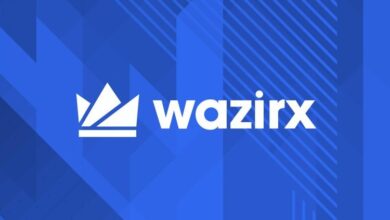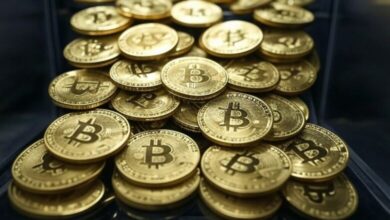Security token offerings set to take off in MENA and Globally

Security token offerings are beginning to provide stiff competition to Initial Public Offerings (IPO). For businesses about to embark on periods of rapid growth, access to capital is essential. That said, traditional methods of fundraising sometimes leave a lot to be desired, an example of which can be seen with IPOs, which, while helping boost the profile of untried brands, are often accompanied by significant costs like the appointment of middlemen, who take a sizeable percentage out of the money generated.
Cryptocurrencies and blockchain have overturned the status quo, removing intermediaries from a plethora of businesses that we all use every day. Their impact is also being felt in the private equity sector — with entrepreneurs getting an opportunity to connect with consumers directly in order to raise the funds they need to prosper, grow and deliver.
The emergence of Digital Ledger Technology (DLT) as the underlying infrastructure for blockchain technology and the perceived multiplicity and diversity of its uses has generated new avenues of fund-raising, including one of the major avenues of enabling the tokenization of assets.
As a general-purpose technology, blockchain-based systems touch upon diverse policy domains. Given their public mandate to oversee technologies affecting markets and society more generally, governments have begun to act to regulate the by-products of these nascent-staged technologies[1]. Based on the OECD[2] Blockchain Policy Series paper[3],
| “Tokenization is the process of digitally representing an existing real asset on a distributed ledger. The Financial Stability Board defines Tokenization as the representation of traditional assets – e.g. financial instruments, a basket of collateral or real assets – on DLT. Asset Tokenization involves the representation of pre-existing real assets on the ledger by linking or embedding by convention the economic value and rights derived from these assets into digital tokens created on the blockchain.” |
Security/Asset tokens include tokens issued for shares, participation certificates, bonds, collective investment schemes, derivatives, titles representative of property and more. A Security Token Offering (STO) is an event during which a company offers its security tokens to investors. STOs are often believed to have evolved from the need to eliminate the regulatory uncertainty surrounding initial coin offerings (ICOs) and the use of blockchain tokens as securities. STOs are often considered to overlap ICOs and IPOs as they perform a similar function to conventional IPOs in that they provide a means by which companies can sell securities to investors to raise capital, while like ICOs facilitating the recordation of ownership information on an immutable blockchain.
REASONS FOR LAUNCHING AN STO
The following points assert several valuable reasons for launching an STO:

- LOW FEES AND LOW BARRIER TO ENTRY: Trading in digital assets can undoubtedly reduce fees. Smart contracts and blockchains can automatize transactions without the need to deal with mediators thus incurring lower costs. A cryptographic token is designed to tokenize any asset, making tokenization a flexible instrument capable of raising funds in private markets for a lower up-front cost.
- FUNDERS CAN OBTAIN MORE FOR LESS: The companies issuing security tokens can benefit from several advantages, one of which is the programmable nature of the token itself allowing founders to decide which rights should be embedded within. Further, issuers can decide what the best profile for their token would be, without the need to surrender voting rights or board seats, allowing them to best focus on the operation and growth of their businesses.
- BETTER REGULATORY OVERSIGHT: Strong regulatory and KYC/AML frameworks facilitating compliance verifications are key requirements for STOs to protect both investors and companies launching STOs.
- AUTOMATED COMPLIANCE: As the regulation applying to security tokens issuance may vary depending on investor type, asset type, jurisdiction involved, and several other factors, the programmable nature of security tokens allows compliance to be embedded within the token itself.
- ACCESSIBILITY TO INSTITUTIONAL CAPITAL: Due to the possibility of extending security regulations to security token offerings, security tokens can attract and bring institutional capital into the blockchain domain.
Other benefits of utilizing STOs as a fundraising method include:
- The speed with which all processes are conducted, facilitated by the usage of smart contracts;
- The ability of STOs to attract international investment; and
- The inherent characteristic of STOs, permitting the fractionalization of tokens and thus making themselves available to smaller investors as well.
TYPES OF SECURITY TOKENS
Most jurisdictions have limited the definition of security tokens to mean the tokens which exhibit the characteristics of securities under the definition of the applicable securities regulations, with such security tokens more often than not, being regulated by the capital markets authorities of the said jurisdiction. It is generally accepted for there to be four types of security tokens, namely;
1- Equity tokens/ share tokens- Are tokens which mirror the behaviour of a share allowing investors to participate in the voting process of a company, receive a share of their profits, receive dividends, and exercise the rights as shareholders of an entity. 2- Tokenized Fund Units- Are tokens which act like the units of funds. They shall entitle the token holders to the same dividends, profits and rights to exercise, as that of a unit holder. 3- Asset Tokens- Are the types of tokens which depend on real-world assets such as land, art, or even property and equipment. Asset-backed tokens are common in real estate projects, as well as infrastructure related activities- and may entitle the holders the right to timeshare, profits and title rights in some cases. 4- Debt Tokens/ Tokenized bonds- Act as loans on the issuing company and entitle the creditors to the same rights as regular debentures, bonds and debt instruments. |
REGULATORY LANDSCAPE IN UAE
Regulators globally are in the process of reviewing their legal structures and frameworks to help determine the approach they may adopt towards adequately regulating the varied nature of digital assets. Within the UAE, the ADGM and SCA have been frontrunners in the adoption of regulations in this space, with both authorities seeking to ensure the establishment of the UAE as a hub of crypto-activity.
- ABU DHABI GLOBAL MARKETS (“ADGM”)
Abu Dhabi Global Markets is a geographically delineated financial free zone with its own common-law based civil and commercial legal framework, and financial services regulatory regime (separate and distinct from the rest of the UAE, including the UAE’s other financial free zone, the Dubai International Financial Centre (DIFC)). Under the powers vested in it under its principle financial services legislation, the ADGM Financial Services and Markets Regulations 2015, as amended (“FSMR”), the ADGM has issued guidance relevant to crypto assets, cryptocurrencies and tokens, promoting itself as an alternative jurisdiction, viable for players in this fast emerging sub-sector of the FinTech ecosystem.
For example, the Financial Services Regulatory Authority (“FSRA”) has clarified it’s position on Digital Securities:
| Digital Securities: If the ‘digital’ or ‘virtual’ tokens have the features and characteristics of a ‘Security’ under FSMR, then such tokens shall be deemed as Securities and may be referred to as ‘Digital Securities’. Generally, for a token to be deemed to be a Security, it should exhibit the characteristics or features of a Share, Debenture or Units in a Fund. |
As part of its holistic approach to the regulation of digital assets, the new Digital Securities guidance (Guidance) provides clarity and transparency to market participants seeking to conduct digital asset activities within ADGM. The new Digital Securities Guidance note provides clarity on the application of ADGM’s Securities regime, through the prism of technological advances and developments, with particular focus on offers, listings and trading, settlement and custody of Digital Securities.
The Guidance note applies to a number of financial services activities within ADGM, including in relation to exchanges and other trading venues, clearing houses, custodians, brokers and other intermediaries, as well as for the issuing, listing and trading of Digital Securities. Importantly, the Guidance also provides a roadmap for entities to efficiently and smoothly migrate into conducting Digital Securities activities within the ADGM, whether or not they have previously been operating within either the conventional or ‘Crypto Asset’ space.
The Guidance note has clarified that applicants for the Digital Securities license must be prepared to engage extensively with the FSRA, both during the application process and thereafter. Hence, the guidance recommends that the applicants appoint compliance advisers, with the appropriate skills, knowledge and experience to provide the requisite assistance throughout the application process.
- SECURITIES AND COMMODITIES AUTHORITY OF UAE (“SCA”)
In October 2019, the Securities and Commodities Authority of UAE issued its draft of the regulations on crypto assets. Pertinently, the key definition relates to a ‘Crypto Asset’- which is defined as an asset functioning as a medium of exchange, store of value, unit of account, representation of ownership, economic rights or rights access of utility of any kind, which is capable of being electronically transferred. The major sub-sectors under Crypto Assets include – ‘Commodity Tokens’ (which are non- Security Tokens) and Security Tokens. Further the term ‘Crypto Asset Exchange’ has been defined to mean a platform or facility for the trading, conversion and/or exchange of Crypto Assets in return for other Crypto Assets, fiat currency, Securities and/or Commodities, which applies non-discretionary trading and/or order matching rules, or which brings potential buyers and sellers together (regardless of whether any resulting transaction is executed on the platform).
The views adopted by the SCA and the draft consultation paper appear to show a keen interest towards the adoption of such assets in the UAE and a detailed regulation with respect to offerings of security tokens is awaited this year.
CASES OF SECURITY TOKEN OFFERINGS IN THE ARAB REGION AND BEYOND
|
CONCLUSION
At this point in time, with a potential to tokenise a multi-trillion dollar addressable market, it seems inevitable that security tokens will represent the next financial revolution, comparable to how Bitcoin has transformed currency. It is extremely hard to argue against the exponential growth security token offerings have made in recent years.
ICOs previously representing a useful tool to raise funds have recently dwindled in numbers due to regulatory uncertainty and their susceptibility to scams. STOs have, in all but replacing ICOs changed the dynamic, representing the perfect synthesis between ICOs and IPOs, with them being capable of satisfying the needs of companies issuing tokens. STOs allow for the tokenisation of any type of asset while remaining fully compliant with cross-jurisdictional securities regulations. The innate ability for such tokens to be fractionalised further entrenches the position of STOs as a viable alternative fundraising instrument.
| “Security tokens are bound to be a mainstay of the future security value chain landscape. The opportunities they offer will help the industry to re-shape an environment that will provide greater efficacy and transparency as regards the security issuance, trading and post trading processes. Nevertheless, local regulatory requirements and inherent expertise will provide scope for existing market infrastructure to play a key role in the establishment of the new DLT ecosystem.” |
[1] Primavera de Filippi, Benedikt Schuppli, Constance Choi, et al., “Regulatory Framework for Token Sales: An Overview of Relevant Laws and Regulations in Different Jurisdictions”, Blockchain Research Institute and COALA, 2018.
[2] Organisation for Economic Co-operation and Development.
[3] Iota Kaousar Nassr, “The Tokenisation of Assets and Potential Implications for Financial Markets”, OECD, (2020), last accessed 25 October 2020.
[5] Unlock Blockchain article on Sumner group
[6] Muneeb Ali, “Blockstack Token Sale Becomes the First SEC-Qualified Offering in U.S. History”, Blockstack, July 10, 2019, accessed 1 June 2020.





